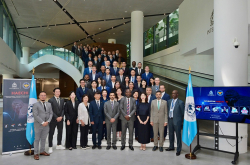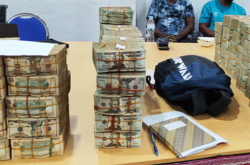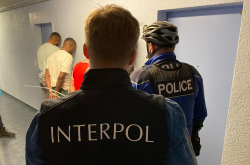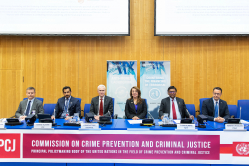Timeframe: 2022 to 2023
Budget: EUR 474,000
Donor: Ministry of Foreign Affairs, Japan
The situation
Transnational financial crime undermines global financial systems, impedes economic growth and causes huge losses to individuals and businesses worldwide. Moreover, money laundering poses a national security threat in that it helps fund organized crime and weakens economies by facilitating corruption.
There was a record number of financial scams and fraud cases across the world in 2021. Consumers reported losing more than USD 5.8 billion to fraud in 2021: a 70% increase over the prior year, according to the Federal Trade Commission. Significantly, the average volume of monthly fraud attacks against banks also increased from 1,977 in 2020 to 2,320 in 2021, according to LexisNexis Risk Solutions.
Criminal groups are operating on a global scale to commit financial crimes. The ongoing COVID-19 pandemic has exacerbated this problem, as criminals exploit new opportunities to defraud companies, individuals and public funds. This includes phishing, phone fraud, investment fraud and payment card fraud. Due to the pandemic, fake shops, websites and social media accounts claiming to sell surgical masks and other medical supplies have also sprung up online.
Project aims
The overall goal of the TORAID initiative is to strengthen global safety and security within Southeast Asia., by training law enforcement agencies to respond to COVID-19-related criminal activities efficiently and effectively.
The TORAID initiative will build on the work achieved under INTERPOL’s Project TORII (Trace, Obstruct, Recover Illicit Inflows). Specifically it will raise awareness of the capabilities of INTERPOL’s Financial Crime and Anti-Corruption Centre (IFCACC) in addressing a wider spectrum of financial crimes. These cover cyber-enabled financial fraud, money laundering and the misuse of virtual assets.
Through a range of targeted activities, the project will contribute to furthering transnational cooperation and promoting a more effective global response.
Project activities:
- Providing law enforcement officers with the knowledge and skills to prevent and investigate COVID-19-related financial crimes;
- Enabling law enforcement officers to react promptly and effectively to transnational (cyber-enabled) financial crimes by establishing an effective technical infrastructure;
- Building a pool of local trainers in the region to improve national authorities’ capacities in investigating transnational crime;
- Expanding the existing network of specialized law enforcement officers to be used as international points of contact to coordinate efforts against transnational financial crime;
- Supporting member countries in identifying and investigating illicit financial flows involving virtual and fiat currencies. (Fiat money is a government-issued currency that is not backed by a commodity, such as gold, but rather by the government that issued it. Most modern paper currencies are fiat currencies, including the U.S. dollar and the euro);
- Raising global awareness on money mules (people who transfer illicitly acquired money, often unwittingly, for criminals, helping them to launder their illegal funds).
Related news









